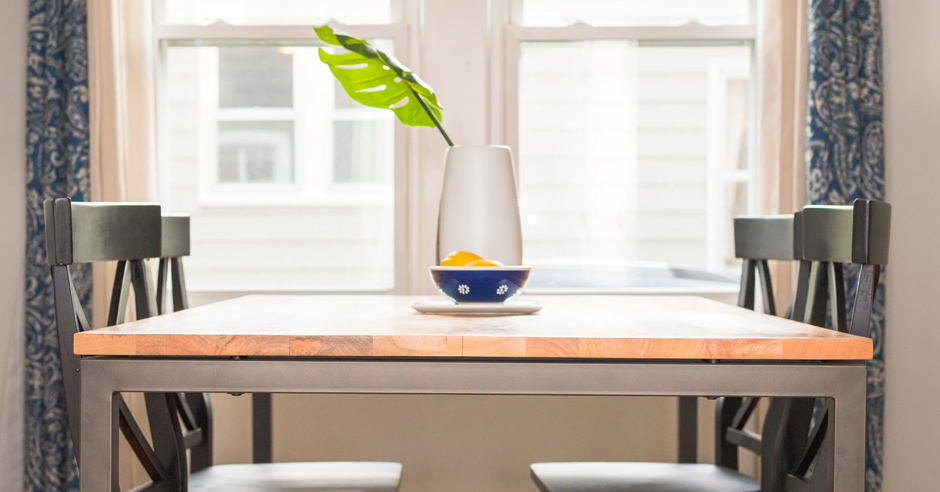
Where do you derive your value from? Is it from the things that fill your living space? Furniture, photos, books, toys. Your job title? Teacher, accountant, freelancer, dog-walker. Maybe it’s from your relationships: parent, brother, godmother, aunt. Or perhaps you arrive at your value simply from how you feel when you wake up in the morning: the better you feel, the higher your worth.
These value markers are like empty seats at the table. We leave them open and put out place settings, hoping they’ll be filled by those we love, familiar faces who make us feel good; but the longer they go unused, the greater their vacancy leaves us wanting more.
Each time we rely on an external measure to determine our self-worth, we are putting out an empty chair. In an urgency to fill them, we continually turn to the qualifiers most readily available to us, those that we’re led to believe define who we are.
Soon, there are more available seats at our table than there are occupied ones.
When an unknown guest with a kind smile shows up at our door, we turn them away, citing, “Those seats are saved.” When this guest returns, this time with hand-picked flowers, we thank them for their thoughtful gesture, but quickly close the door. When this guest comes back again with a loaf of fresh-baked bread, we usher them out saying we don’t have any room, and return to our empty table.
No matter how many times the traits of which our value is composed present themselves, we readily reject them in favor of those we hope will make our net worth rise.
Our relationships, occupations, and possessions are no better at defining us than is a morning rain shower at predicting whether the sun will set. One is variable, the other absolute.
The more we are able to recognize our inherent value, the more we seek relationships, jobs, and belongings that fulfill us. Yet so often we behave as if the opposite is true: we seek fancier titles, expensive accessories, and expect our loved ones to make us feel whole.
Our sense of wholeness comes from within. It comes from:
Our talents: What are you good at? What comes naturally to you that others struggle with? It doesn’t need to be something you’ve been doing for a long time, and certainly doesn’t need to be something that makes you popular. If you’re fluent in gardening or have a knack for repairing old bikes, more power to you!
Our goals: Where do you see yourself in 10 years? How about in 10 minutes? It’s not achieving our goals that determines our value, but our setting them. Maybe you want to train for a race. Your value is inherent in the way you choose to take care of your body, not in your finish time.
Our free time: How do you spend your unfilled hours? Volunteering, seeing friends, exploring your city? When we connect with something larger than ourselves, we are choosing to believe that our actions and our voice matter; that we matter.
How we love and care for ourselves: We cannot value ourselves fully when we fail to take care of ourselves. When we’re repeatedly hard on ourselves, or don’t take time to tend to our needs, we send ourselves the message that we are not worthy. When we recognize our worth, we simultaneously recognize that we are deserving of our own love and attention.
When we invite in these guests, our table is always full.
We cease to feel the longing of being surrounded by empty chairs and instead feel grounded, open, and grateful.
Our relationships matter not because they make us feel whole, but because we have learned to engage with them fully.
Our jobs begin to shape us by what we bring to them, not by what they demand from us.
Our material possessions simply become extensions of the value we hold for ourselves, not for the value we expect them to add to our lives.
And we wake up each morning, knowing that our worth does not fluctuate with the day’s occurrences, but instead is measured from a place deep inside, where fresh-baked bread, hand-picked flowers, and kind smiles are bountiful.
About the Author: Emily earned her bachelor’s degree in psychology and master’s degree in counseling psychology. She currently writes for DailyGood, Baltimore STYLE Magazine, and No Sidebar.